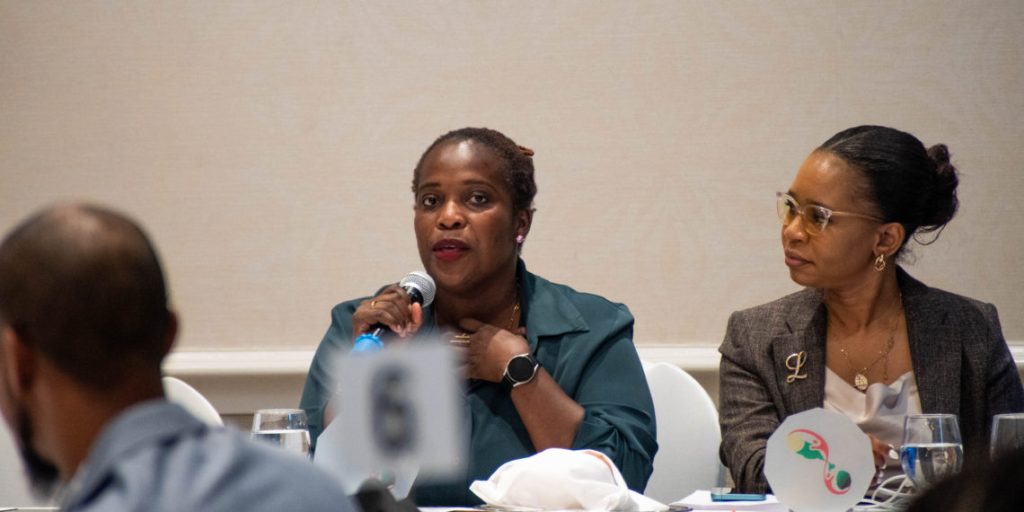Saint Lucian Court Invalidates Colonial-Era Legislation
A Landmark Victory for LGBTQ+ Rights in the Caribbean: Saint Lucia’s Decriminalization of Same-Sex Intimacy
On July 29, 2025, the Eastern Caribbean Supreme Court etched a significant victory for LGBTQ+ rights in the Caribbean, declaring sections 132 and 133 of Saint Lucia’s Criminal Code, which criminalized buggery and gross indecency, unconstitutional. This ruling marks a crucial step towards dismantling colonial-era laws that have long perpetuated stigma, discrimination, and violence against LGBTQ+ individuals in the region. The court’s decision affirms the fundamental rights of LGBTQ+ persons to privacy, life, liberty, security of the person, freedom of expression, and protection from discrimination based on sex, inclusive of sexual orientation. It unequivocally asserts that consensual same-sex intimacy in private is protected under the Constitution, reinforcing the principles of human dignity and modern democratic values.
The Caribbean Forum for Liberation and Acceptance of Genders and Sexualities (CariFLAGS), along with its affiliates, the Eastern Caribbean Alliance for Diversity and Equality (ECADE) and United and Strong, celebrated this momentous decision. The ruling signifies a growing recognition within the Caribbean judiciary that laws criminalizing same-sex intimacy are incompatible with fundamental human rights. It acknowledges the detrimental impact of these laws on the quality of life and mental health of LGBTQ+ individuals, who often face stigma, isolation, social exclusion, public hostility, workplace discrimination, police brutality, and sexual violence due to their sexual orientation or gender identity.
The court’s decision aligns with a broader trend within the Eastern Caribbean Supreme Court to overturn similar discriminatory provisions in other countries. This progressive trajectory sends a powerful message that LGBTQ+ rights are human rights and that governments have a duty to protect all citizens, regardless of their sexual orientation or gender identity. The court’s interpretation of privacy rights as encompassing the dignity of each individual is a particularly significant development, acknowledging the deeply personal nature of intimate relationships and the importance of protecting them from state interference.
While the victory in Saint Lucia is encouraging, the path towards full LGBTQ+ equality in the Caribbean remains fraught with challenges. The reversal of a similar ruling in Trinidad and Tobago, along with the ongoing legal battle in St. Vincent and the Grenadines, underscores the complexities and inconsistencies in the region’s approach to LGBTQ+ rights. These contrasting outcomes highlight the need for sustained advocacy and legal challenges to ensure that the progress made in Saint Lucia extends throughout the Caribbean.
CariFLAGS calls for comprehensive action from Caribbean governments to dismantle discriminatory legislation, establish robust human rights institutions compliant with international standards, and engage in meaningful dialogue with citizens on human rights issues. They urge governments to actively collaborate with civil society organizations, development partners, and other stakeholders to develop and implement inclusive policies and laws that protect the most marginalized communities. This includes addressing gender-based discrimination, violence, and inequalities, ensuring that all individuals, regardless of their gender identity or sexual orientation, can live with dignity and respect.
The decriminalization of same-sex intimacy in Saint Lucia sets a powerful precedent for other Caribbean nations grappling with similar discriminatory laws. It serves as a beacon of hope for LGBTQ+ individuals, demonstrating that legal challenges can lead to meaningful change and create a more just and equitable society. The ongoing struggle for LGBTQ+ rights in the Caribbean requires continuous vigilance, advocacy, and legal action to ensure that the momentum generated by this historic ruling translates into lasting and positive change for all LGBTQ+ individuals in the region. The fight for equality is far from over, but the victory in Saint Lucia represents a significant stride forward in the pursuit of a Caribbean where all persons are treated with dignity and respect.
Share this content:










Post Comment